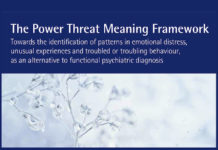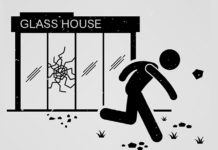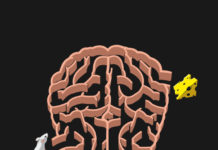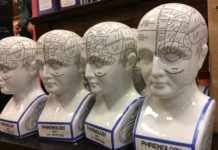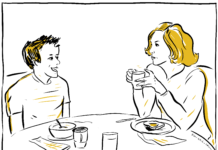The Power Threat Meaning Framework One Year On
The team that developed the Power Threat Meaning framework as a diagnostic alternative reflects on the response to the framework after one year.
Remembering Deron Drumm: The Vision and the Hope for Healing and Connection
A memorial blog for Deron S. Drumm, Executive Director of Advocacy Unlimited and founder of the Toivo wellness center, who passed away on April 4, 2019 from a sudden illness. Readers who knew Deron and would like to honor his life and work are invited to share their remembrances here.
25 Lenses Through Which to View How Life is Experienced
Each of us is a real human being dealing with real circumstances and experiencing the passage of time. Each knitted together as a multiplicity, smiling one moment and dreaming of revenge the next, oblivious to the world one moment and marching in protest the next, selfless one moment and selfish the next. Labels do not capture this reality.
On Whose Authority?
The problem with authoritarianism is that it shuts down the possibility of ordinary people (that’s all of us) creating anything new. Can therapists give up our addiction to knowing what’s “the right path,” what’s the “smart” answer, what’s the solution to the problem, in favor of supporting our clients to create new ways of building their lives?
The Role of Racial Bias in the Overdiagnosis of Schizophrenia
Researchers detect disparity between white and African American patients diagnosed with schizophrenia when symptoms of a mood disorder are present.
In Defense of Anti-Psychiatry
Last year, Ronald Pies, MD and Mark Ruffalo, LCSW published an article titled "The Reality of Mental Illness." In it they claim that "most of what is asserted by antipsychiatry is easily refuted by the scientific evidence." Why then do they not refute it? The reality is that they malign us because they have no rational response to our criticisms.
Helping People to Constructively Engage with Voices
When voices are engaged with creativity and compassion, the result can be a positive change in the relationship with voices, leading to much greater peace of mind. But how can people learn how to facilitate this? A new video series by Charlie Heriot-Maitland, Rufus May and Elisabeth Svanholmer offers some practical ideas.
“Dad, You Were Right”: I Got Better When I Stopped Treatment
Through all the years that I was a mental patient, my parents were excellent advocates who constantly questioned what the docs were doing, even though my own faith in psychiatry was unwavering.... Amazingly, what cured me was not some type of “treatment,” but getting away from drugs and therapy.
Researchers Fail to Replicate Evidence for “Biotypes” of Depression
A new study casts doubt on whether such biotypes for depression exist.
Valuing Posttraumatic Growth in Psychosis
Individuals who experience psychosis can also experience posttraumatic growth, which can be a central component of the recovery paradigm.
Media Errors in Covering “Mental Health” – Advice to Fellow Writers and Editors
In 2015, I published a BuzzFeed feature story about Teresa Sheehan, a woman who was diagnosed with "schizoaffective disorder" and was shot by police. At the time I didn’t realize that it was my job to take the point of view of people who’ve been psychiatrically diagnosed very seriously. I was terrified of appearing to challenge the profession of psychiatry.
Lee Coleman – The Insanity Defence, Storytelling on the Witness Stand
An interview with Doctor Lee Coleman, in which we focus on psychiatry in the courtroom and why the psychiatric expert witness role may be failing both the individual on trial and society at large.
The Lonely Wave: On the Failure of Group Therapy
If you put mortally desperate people in a room together, what do you expect? Emotions will spill over and people will jostle for time and topic. In my groups, even the most kindhearted had attempted to either become the center of attention or slink away into silence, often leaving early with a whispered “sorry” and a quick shuffle out of the room.
Antidepressant Use Linked to Longer, More Frequent Psychiatric Rehospitalization
New study finds that antidepressants may negatively impact recovery after psychiatric hospitalization.
The New Yorker Peers into the Psychiatric Abyss… And Loses Its Nerve
The New Yorker's story on Laura Delano and psychiatric drug withdrawal is a glass-half-full story: It addresses a problem in psychiatry and yet hides the deeper story to be told. A story of how her recovery resulted from seeing herself within a counter-narrative that tells of the harm that psychiatry can do.
More Physical Activity-Based Mental Health Interventions Needed in Schools
What physical activity-based programs are being implemented in schools, how are they being researched, and what kind of impact have they made?
Constructing Alternatives to the DSM: An Interview with Dr. Jonathan Raskin
Dr. Raskin discusses psychotherapists’ dissatisfaction with current psychiatric diagnostic systems and explores alternatives.
Struggling Parents, Burdened Social Services: What We Can Change
Parents encounter many obstacles when trying to secure adequate educational, medical, psychological, and social supports for their children. These “dense bureaucracies” hurt not just families, but everyone.
The Impact of Regression to the Mean in Psychiatric Drug Studies
Could the statistical phenomenon of regression to the mean be responsible for the dramatic effects of placebo—as well as the supposed effectiveness of some psychiatric drugs?
Psychosocially Oriented Psychologists Struggle Against the Medical Model
Interviews with psychosocially oriented psychologists demonstrate their experiences of discomfort with the hegemony of the medical model in their place of work and the conflicts that arise when they attempt to provide alternatives.
The Science and Pseudoscience of Women’s Mental Health: Conversation with Kelly Brogan
A conversation with Dr. Kelly Brogan, a leading voice in natural approaches to women’s mental health. With degrees from MIT and Weil Cornell Medical College, triple board certification in psychiatry, psychosomatic medicine and integrative holistic medicine, Dr. Brogan is uniquely qualified to challenge the pseudoscience of the chemical imbalance theory and the drug regimens that it spawned.
Mental Health Recovery Narratives Play Central Role in Trauma-Informed Care
New research synthesizes insights from 45 studies to construct a conceptual framework relating different elements of recovery narratives to trauma-informed approaches to care.
ECT Explained by a CET (Certified Engineering Technologist)
A scientific understanding of electricity’s effects on the human body has only been around since the last half of the 20th century. If this understanding of electric shock and electrical injury was had in the first part of the 20th century, electroconvulsive therapy (ECT) would likely never have been accepted by modern western medicine.
More Psychological Supports Needed to Manage Antidepressant Discontinuation
Study reviews psychological interventions for antidepressant discontinuation.
Why “Middle-Grounders” May Be as Dangerous as APA Presidents
When above-the-fray/middle-roaders jump on bandwagons and criticize only those aspects of psychiatry that have become fashionable to criticize but don’t challenge the legitimacy of psychiatry as an authority, they hurt more than they help. They provide the false impression that psychiatry is self-correcting and progressing.

